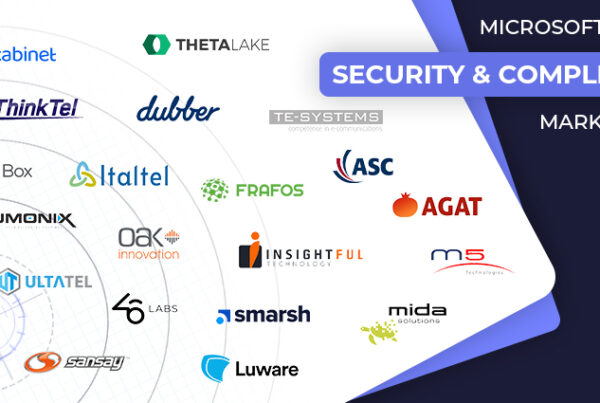
In a time where more and more transactions and general interactions are taking place digitally, the importance of ensuring compliance in communications has risen to new heights. To meet this demand, companies face a mixture of mountains and molehills in their path to ensuring this compliance.
Stacey English of Theta Lake believes that when it comes to communications compliance, the biggest headwind for companies is the issue of unmonitored communications.
“The more than $2bn in fines already levied against over 20 banks this year by US regulators has served as a massive wake up call to address this critical area of compliance,” she said. “With regulators in other jurisdictions, including the UK, following suit and widespread failings coming to light across the industry it’s unsurprisingly top of mind for financial services firms to ensure they’re not exposed.”
The issue of unmonitored communications is prevalent across all levels, English quipped, not simply a small percentage of bad actors that are trying to avoid oversight. However, she believes traditional approaches to compliance are proving to exacerbate the problem.
She explained, “We know that over half of firms have disabled features such as chat or video across their communications platforms like Zoom or Microsoft Teams because of compliance concerns. That’s created the unintended consequences of forcing staff to bypass controls and use other unapproved tools such as WhatsApp in order to get their job done – whether that’s simply to share files, chat during meetings or engage on customers’ preferred channels.”
Despite the obvious pitfalls companies can face, there is undoubtedly opportunities for those companies willing to reach for them.
English commented, “Deploying modern compliance technology is creating significant opportunities and advantages. Because Theta Lake is built for modern communications we can capture, retain and supervise anything that is spoken, shown, shared or typed.
“That means firms can confidently allow employees to use the productive features like digital whiteboards, video, chat, audio or screenshare knowing that all contextual information from GIFs and emojis through to edits and reactions will be captured. The opportunity to turn features on is not only helping compliance, by keeping staff on approved communication platforms where records can be retained and monitored, it’s bringing financial benefits,” she underlined.
With the global economic challenges providing significant upheaval for firms worldwide, the opportunity for a greater ROI is becoming more important than ever. English stressed that this means enabling the organisation to benefit from their investments in powerful unified communication platforms for today’s workplace – not turning functionality off.
“For example, enabling participants to collaborate or chat with each other during a Zoom meeting maximizes productivity rather than distracting staff by having to use multiple video, audio or messaging tools – making it virtually impossible for compliance to follow an audit trail, or worse, having users use non sanctioned tools to communicate and exacerbating potential risk,” she waxed.
English – who is the director of regulatory intelligence at Theta Lake – emphasised that completeness of records capture is only the first part of the trend in communications compliance, with being able to supervise communications and have proactive oversight of risks being equally critical.
“Our financial services customers are leveraging AI to review vast volumes of communications which would otherwise outstrip the capacity of their compliance teams to capture and manually review them,” she stated.
According to English, the AI-enabled risk detections examine content in context and at scale to identify regulatory, privacy and security risks in video, voice, chat, SMS, whiteboards and file transfer data.
Read the full article here!











